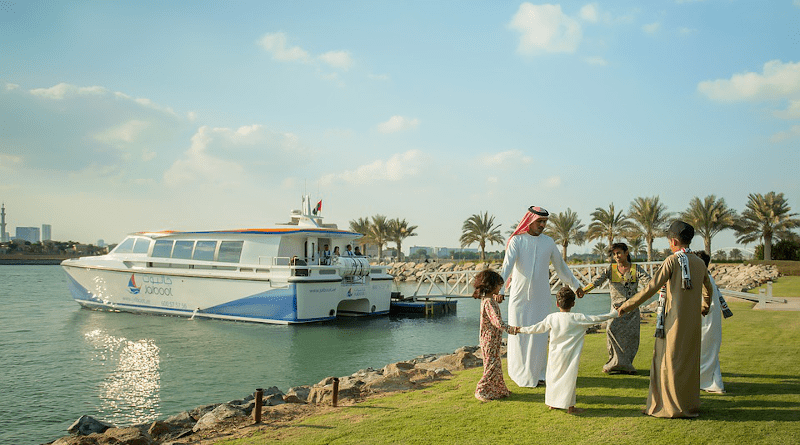Arab Youth Seek Certainty In Religion And Tradition – Analysis
A just-published survey suggests Arab youth are returning to traditional values. The survey contrasts starkly with another, only partially released poll, in which a growing number favour religious reform.
The conservative trend in the just released 15th Arab Youth Survey 2023 conducted by Dubai-based public relations company ASDA’A BCW reflects an earlier Arab Barometer poll. At the same time, those polled in the youth survey offered seemingly contradictory responses to questions.
If accurate, the trend casts a shadow over social reforms enacted by leaders such as Saudi Crown Prince Mohammed bin Salman and United Arab Emirates President Mohammed bin Zayed that have enhanced women’s rights and professional and leisure opportunities and created Western-style entertainment industries.
Mr. Bin Zayed has gone further than Mr. Bin Salman by reducing, if not removing, restrictions on alcohol consumption and cohabitation. The Saudi crown prince is believed to want to follow suit.
Earlier this year, the Saudi Tourism Authority surprised many by announcing that LGBTQ tourists would be welcome in the kingdom.
Similarly, Saudi Arabia and the UAE, alongside Bahrain, recently released Barbie in contrast to Kuwait and Lebanon, which banned the movie because it violated religious and social norms.
Two months earlier, the kingdom and the Emirates removed ‘Spider-Man: Across the Spider-Verse’ from their release schedules for similar reasons.
It’s not clear how the release of Barbie and the welcoming of LGBTQ tourists sit with 54 per cent of those polled by ASDA’A BCW, who emphasized the importance of religion, tradition, and family in their personal and public lives.
In a similar vein, 76 percent were concerned about the loss of traditional values and culture. Sixty-five per cent overall and 72 per cent in the Gulf prioritised preserving religion and tradition over creating a tolerant, liberal, and globalised society.
Seventy-three percent disagreed that religious values held the Arab world back. More than sixty per cent wanted their country’s laws to be based on Sharia.
In line with those results, ASDA’A BCW reported that the number of youths who believed that the “Arab world needs to reform its religious institutions” was decreasing. Fifty-eight percent agreed in this year’s s survey compared to 79 per cent in 2019.
The ASDA’BCW results are echoed by Arab Barometer, which regularly surveys public opinion in the Middle East like the public relations company.
Michael Robbins, director and co-principal investigator of Arab Barometer, has noted a stark increase in Arab youth wanting clerics to have greater influence on government decisions. “In 2021-2022, roughly half or more in five of ten countries surveyed agreed that religious clerics should influence decisions of government,” Mr. Robbins said.
He said that “while youth ages 18-29 have led the return to religion across MENA (the Middle East and North Africa), the rise in support for religion in politics is more widespread across society. In most countries, both older and younger members of society are shifting their views in concert.”
Mr. Robbins added, “Results from nationally representative public opinion surveys…strongly suggest that political Islam is making a comeback. In most countries surveyed, young and old citizens demonstrate a clear preference for giving religion a greater role in politics. This is the first time that support for political Islam has increased meaningfully…since the Arab Uprisings of 2011.”
ASDA’A BCW and Arab Barometer’s results contrast starkly with a recent, partially released Washington Institute of Near East Policy survey suggesting that Saudis increasingly favour religious moderation and may be more open to religious reform.
Forty-three per cent of those surveyed by the Institute agreed that Saudis “should listen to those among us who are trying to interpret Islam in a more moderate, tolerant, and modern direction.” When asked the same question four years ago, only 20 per cent agreed.
Moreover, 65 percent surveyed by the public relations company said religion played too big a role in regional affairs. However, that figure dropped from 72 per cent last year. The survey left open what aspects of regional affairs youth meant.
Another potential contradiction was the trend towards conservatism juxtaposed with 80 per cent of those surveyed stressing the need for respect for freedoms, equality, and human rights.
The concern about traditional and religious values and the contradictions suggest complex youth attitudes towards aspects of reform.
Youth’s emphasis on tradition and religion also indicates that deepening national rather than religious and tribal identities remains a work in progress in the Arab world.
Underscoring the complexity of the identity shift, just over half of those surveyed by ASDA’A BCW attributed less significance to Arabic than their parents.
The reduced weighting of the language implied an inclination towards a more globalized society. Yet, squaring the circles is difficult, with youth saying they are less focused on globalisation.
The contradictions speak to uncertainty sparked by rapid social and economic change. Religion and tradition appear to emerge as anchors as religiosity among youth increases.

